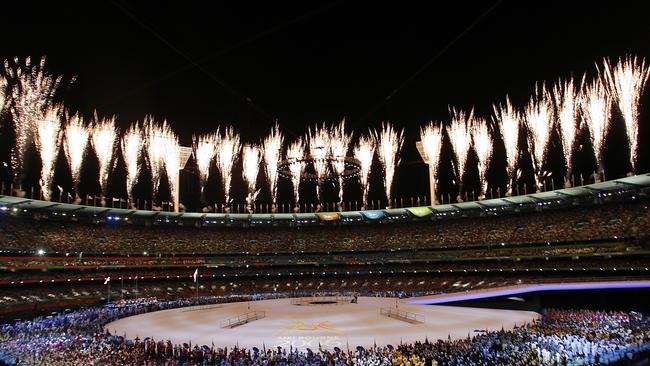Glasgow poised to pick up Victoria’s scrapped 2026 Commonwealth Games
Scotland is poised to host the 2026 Commonwealth Games, thanks in large part to a taxpayer-funded handout from Victoria.

Scotland is poised to host the 2026 Commonwealth Games in Glasgow following last-minute discussions with the British government – and an unspecified handout from Australia.
A last gasp commitment announced on the weekend by the hugely embarrassed Australian Commonwealth Games Association to provide “several million pounds”, on top of the $380m in cancellation fees paid by the Victorian government, has been vital in propping up the planned £150m 11-day event.
The Scottish government has been in talks with Westminster about budget overruns, which have resulted in the British government agreeing to cover extra security costs if the country’s terror threat level rises.
Other funding for the Games will come from proposed ticket sales and merchandise profits of £50m.
The Scottish government, in conjunction with Glasgow city council, is expected to give final approval soon.
The Commonwealth Games Federation has been scrambling to find a new host since July last year when then Victorian premier Daniel Andrews scrapped the ambitious Victorian Commonwealth Games planned for 20 sports and nine para-sports across the state.
The Glasgow model will be for just 10 sports, half of that planned for Victoria. Popular outside events such as the marathons, marathon swimming and road cycling will be scrapped. The idea is to have the sports confined to venues close to Scotstoun Stadium and the Tollcross International Swimming Centre, with athletes housed in local hotels. Ceremonies will be scaled down.
Mr Andrews had blamed spiralling costs for his shock decision, but the cited $6.9bn cost blowout of the original $2.6bn was found to be “overstated” by the Victorian auditor-general. It was found the scrapped Games cost Victoria more than $589m.
Glasgow’s very modest 2026 project will be about a quarter of the cost of the hugely successful 18 sports edition, which included upgrading of facilities, when the city hosted the Games in 2014.
Labour MP Neil Bibby urged Holyrood last week to seize the opportunity of £100m inward investment, which would not come from public funds. He said: “Every child in Scotland under the age of 16 either was not born or would struggle to remember those (2014) Games. Innovative and new-format games could provide children and young people in Scotland today with a unique opportunity to witness and be inspired by world-class athletes on their doorstep.”
Commonwealth Games Scotland said this week that Australia’s willingness to invest further money, “to further alleviate concerns of perceived financial and reputational risk”, had shown the high regard for the cost-effective proposal within the global sport and events community.
Keeping the Games on track, in whatever shape or form was crucial for Australia’s sports plans in the lead-up to Brisbane hosting the 2032 Olympics, the Commonwealth Games president Ben Houston said. When handing over the extra money, Mr Houston said: “Now is not the time to walk away from a Games that has inspired for generations.”







To join the conversation, please log in. Don't have an account? Register
Join the conversation, you are commenting as Logout